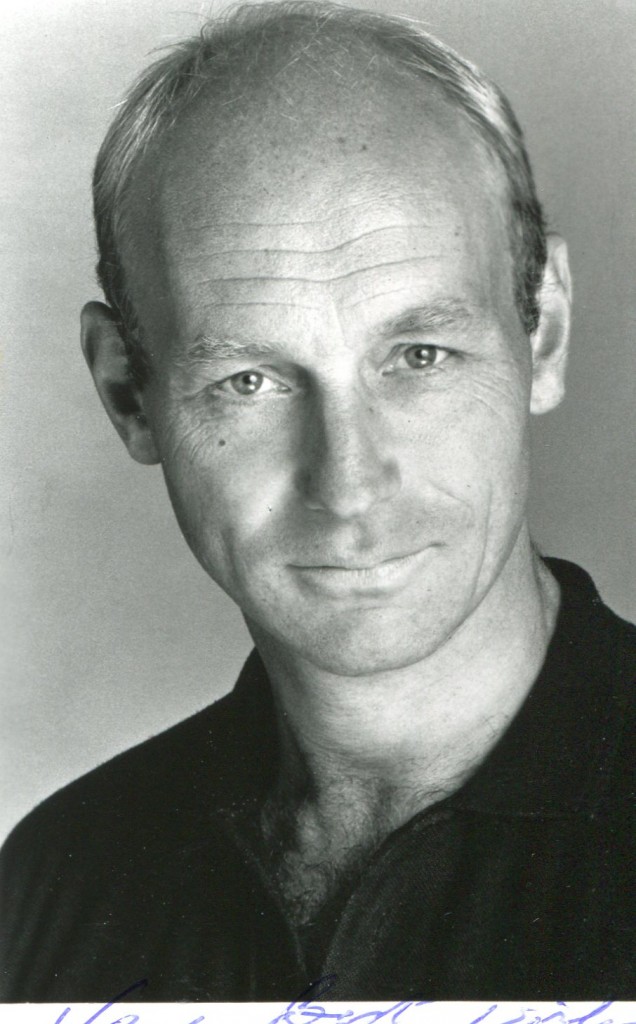
David McAlister has featured in many TV series in the UK such as “Brookside” and “Juliet Bravo”.

Brittish Actors

David McAlister has featured in many TV series in the UK such as “Brookside” and “Juliet Bravo”.
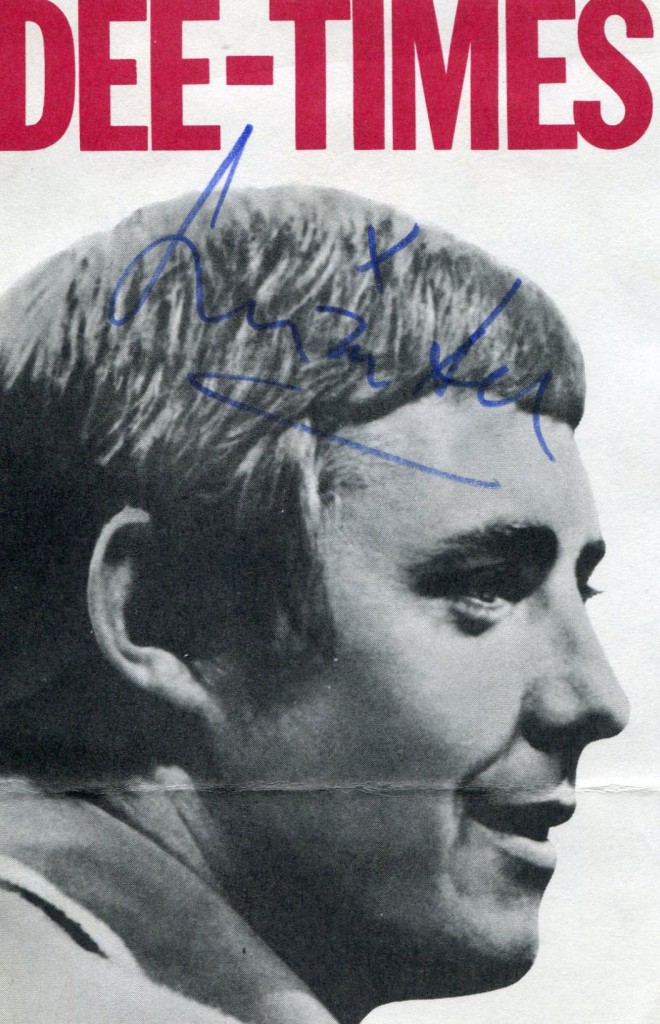
Simon Dee was a very popular TV talk show host who made two films, “Doctor in Trouble” in 1970 and “The Italian Job”. He died in 2009 at the age of 74.
Anthony Hayward’s “Guardian” obituary:
Simon Dee, who has died of bone cancer at the age of 74, was a radiodisc jockey of the Swinging Sixties who took his larger-than-life personality to television as host of the chatshow Dee Time. Dee began his broadcasting career as one of the pirate radio DJs who brought the latest pop sounds to Britain’s teenagers. His was the first voice to be heard on Radio Caroline, the country’s inaugural offshore pirate station, which took to the airwaves in 1964, anchored three miles off the Essex coast, just outside British territorial waters. His theme tune was On the Sunny Side of the Street.
The following year, Dee left to present a late-night Saturday show on theBBC Light Programme and was also heard on Radio Luxembourg. When, in 1967, the BBC finally launched Radio 1 and the Marine Offences Act outlawed Caroline and other pirates, Dee was among the original team of DJs on the new channel, presenting the Monday edition of Midday Spin. Like some of his colleagues, he also presented Top of the Pops.
However, he was by then already making waves on television with his chatshow Dee Time (1967-69), which attracted up to 18 million viewers. Anyone who was anybody wanted to appear in the programme, which opened with the upbeat introduction “It’s Si-i-i-i-mon Dee!” and closed with film of the host driving off in an E-type Jaguar, with a blonde in the passenger seat. Sammy Davis Jr, Zsa Zsa Gabor, Rod Taylor, Richard Harris and John Lennon were among the guests who queued up to be interviewed by Dee. He was even reported to have been asked to audition for the role of James Bond in 1969.
But Dee walked out on the show after only two years when the BBC refused to bow to his salary demands. He took his massive ego to the ITV company LWT, which offered him a salary of £100,000 to host The Simon Dee Show (1970), although it already employed the heavyweight interviewer David Frost.
When Dee fell out with his new bosses, the latenight Sunday show was axed. This followed the broadcast of an interview with the new Bond actor George Lazenby, who used the programme to make claims about American senators he believed to have been involved in the assassination of President John F Kennedy. Dee’s fall from grace proved at the time to be one of the fastest and most sudden in broadcasting history. His career was over, never to be revived.
He was born Cyril Nicholas Henty-Dodd in Lancashire, although at the height of his fame his publicity material claimed that the star’s birthplace was Ottawa, Canada. Privately educated, he attended Shrewsbury school, Shropshire, then worked in a coffee bar and as a vacuum-cleaner salesman, photographer and designer, before joining Radio Caroline. This was when he changed his name, combining his son’s forename with the initial letter of his surname to become Simon Dee.
While establishing himself on tele- vision as a symbol of the era, he hosted the 1967 Miss World contest, before making appearances in the films The Italian Job (1969) and Doctor in Trouble (1970). Of that first cameo, he recalled: “Mike [Michael Caine] had been on the show and thought he’d do me a favour. I played a poofy Savile Row tailor and I was so good that poofs started chasing me.”
The comedian Benny Hill parodied Dee as Tommy Tupper, host of the chat-show Tupper Time, and, many years later, it was claimed that he was the inspiration for the Austin Powers spoof spy films.
After his show was axed, Dee was spotted signing on the dole at Fulham labour exchange. However, he remained in the news, claiming that he had been ousted as a result of his opposition to Britain entering the EEC and that his phone was tapped by the intelligence services. Dee said: “Being a high-flier in the media, I knew I’d have my phone tapped by British intelligence. It was perfectly obvious that the CIA, who controlled our media and still do, would be on my case.” In 1974, he served 28 days in Pentonville prison for non-payment of rates on his former Chelsea home.
Although he made brief comebacks as a DJ with the Reading-based commercial station Radio 210 in the late 1970s and as host of Sounds of the Sixties on BBC Radio 2 in 1988, they did not last. When Dee returned with a one-off live edition of Dee Time on Channel 4 in 2003, one critic wrote that Dee reminded him of “Alan Partridge – a toxic mix of naff, bitterness, strange vulnerability and pompous self-regard”. The show was followed by the documentary Dee Construction, charting the star’s rise and fall.
Dee, who moved to Winchester in 1994, was married three times and had three sons and one daughter.
• Simon Dee (Cyril Nicholas Henty-Dodd), disc-jockey and television presenter, born 28 July 1935; died 29 August 2009
The above “Guardian” obituary can be accessed online here.
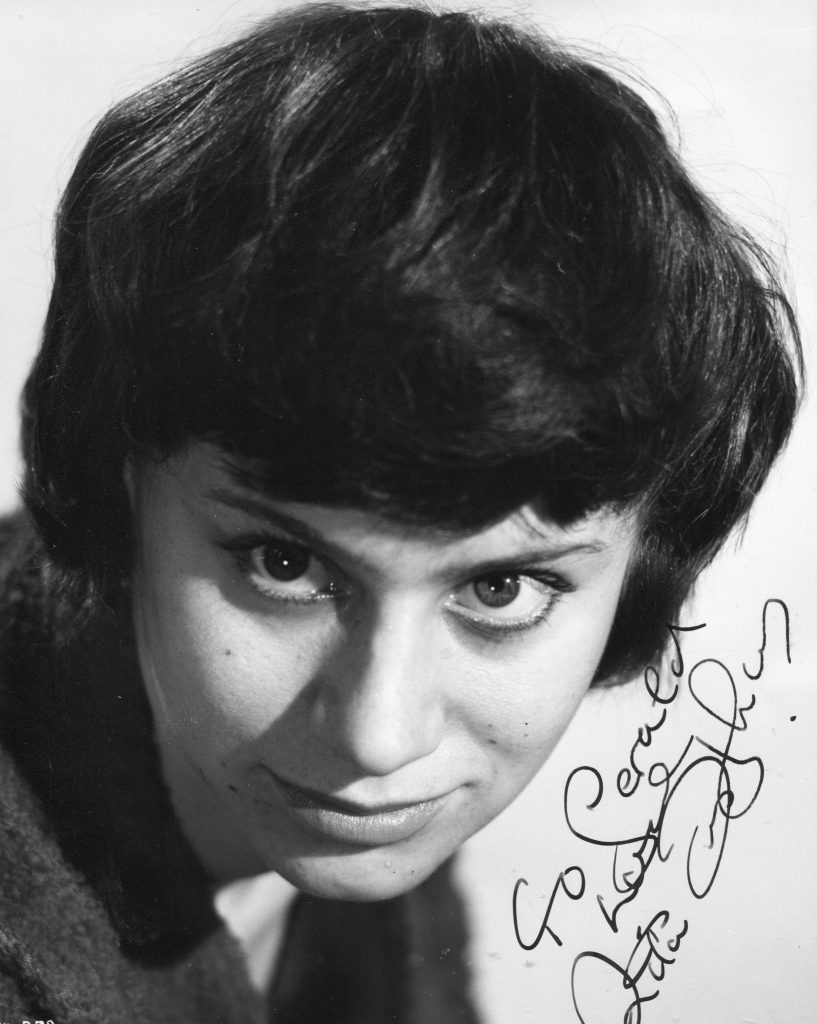
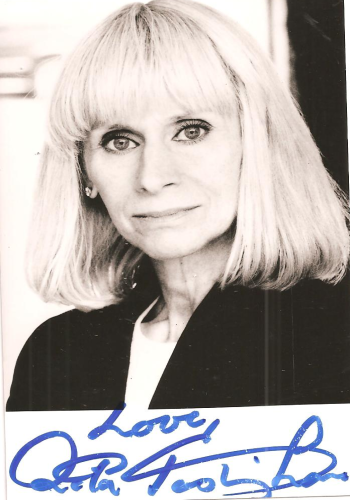
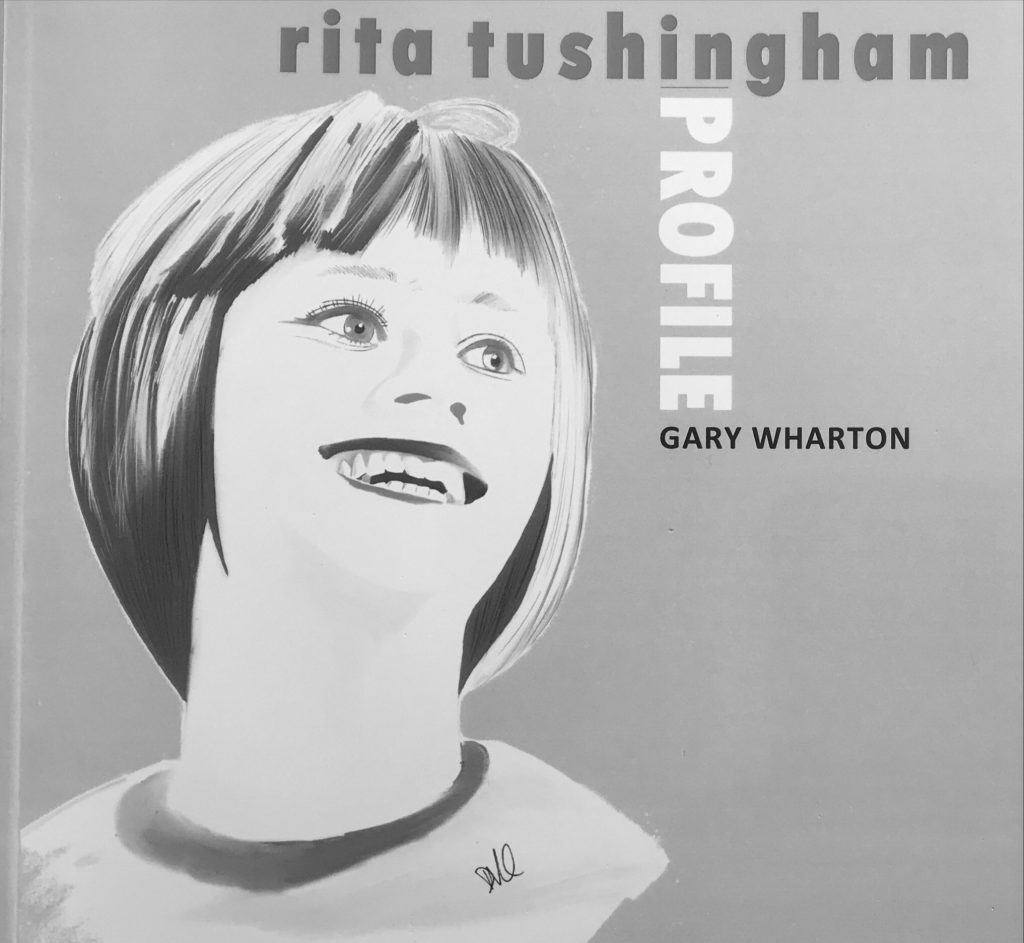
Rita Tushingham was one of the major movie actresses in British films of the 1960’s. Her films of that time include “A Taste of Honey” in 1961, “The Girl With Green Eyes”, “The Knack” and “The Trap”. She has continued acting in movies and the stage.
TCM overview:
Unorthodox, waif-like lead of the 1960s who burst into the public eye with a starring role in Tony Richardson’s “A Taste of Honey” (1961). After numerous first-rate outings in the 1960s, during which she was typecast as the female equivalent of the British “angry young man”, Tushingham’s career faltered in the bleak 70s and she made several mediocre Italian films. She has resurfaced in the 1980s, starring in the 1986 thriller, “A Judgement in Stone” (directed by her second husband, Ousama Rawi) and “Resurrected” (1989).

Joan Sanderson was born in 1912 in Bristol. She is perhaps best known for her role in the British TV series of the 1970’s, “Please Sir” with John Alderton. She also played the deaf Mrs Richards in an episode of “Fawlty Towers” in 1979. She died in 1992.
IMDB entry:
Joan Sanderson was a well known British television and stage actress. During several seasons at Stratford Upon Avon, she played the roles of Goneril in King Lear, Constance in King John, and Queen Margaret in Richard III. In a single season at the Old Vic she appeared in The Mousetrap, and in 1981 ended her stage career in the production of “Anyone for Denis” at the Whitehall Theatre in London’s West End. She was well known for her portrayal of Doris Ewell in the television series “Please Sir!” (1969), and as the selectively deaf Mrs. Richards in an episode of “Fawlty Towers”(1975).

Dave King was a British comedian who also acted in some notable fillms such as “The Long Good Friday”, “Go to Blazes” and “Revolution”. He died in 2002 at the age of 72.
“Guardian” obituary:
During an all-too-short career 40 years ago, it was predicted – with complete justification – that he would be one of the greatest British entertainers of all time. He was a brilliant comedian who helped give back the London Palladium to Britain at a time when its stage was dominated by American stars like Danny Kaye, Bob Hope and Lena Horne.
He decided to try his hand at pop singing and proved that not only did he have a very pleasant voice, but it was strong enough to take him to the top of the charts. And, as if that was not enough, he was going to star on television. It was a wise choice.
Not only was he a brilliant success here in Britain, but he was taken to America on the strength of it – and he didn’t simply appear on TV there, he actually hosted the country’s most famous variety show, the Kraft Music Hall, which had been the home of Milton Berle (and in its former incarnation on radio had starred both Bing Crosby and Al Jolson).
The nay-sayers predicted disaster. They were wrong. Unlike almost every other British star who thought he could do wonderfully well on both sides of the Atlantic and then proved it an impossible dream, it seemed that Dave King could do no wrong.
And then he walked the well-worn path chosen by many other entertainers: he decided to go legit, to play in dramatic roles. The doom peddlers were again wrong. He was an outstanding success – not just on the small screen, both in America and Britain, but in Hollywood, too.
That was success beyond most entertainers’ dreams. And then it all started to go downhill. He wasn’t quite in demand to the same extent any more. His style of comedy began to be seen as dated – even though he had had people like Mel Brooks writing for him. His way of singing went out of fashion with the birth of rock ‘n’ roll. And his lyrical voice, which sang songs of romance like Memories Are Made Of This or You Can’t Be True To Two, didn’t go down at all well with record-buyers who worshipped at the shrine of the four lads from Liverpool. But, although he remained a journeyman actor when he appeared in small or cameo roles on both sizes of screen, there were always fans who cheered his presence.
Dave King was born in Twickenham and went into show business seriously after completing national service in the RAF, although he had previously joined Morton Fraser and his Harmonica Gang, an outfit unashamedly based on the American Borrah Minevitch’s Harmonica Rascals (the group which, a few years earlier, had told a youngster called Larry Adler that he wasn’t good enough for them).
He went back to the gang after national service, but was soon branching out as a solo artist – mainly as a singer. But he also showed that he could be funny, and in 1955 the BBC gave him his own TV series, which sometimes featured the shapely singer Yana and a magician whom he predicted would soon go far, by the name of Tommy Cooper.
He continued to make records, which were perhaps a little too close to the original recordings made by Dean Martin and Perry Como. But, in those days, when records were bought for their own sake, no one seemed to mind that they were mere cover versions. They sounded nice, and young men liked to put them on the turntables of their wind-up (or newly bought electric) record players, and dance smoochily to them with their pony-tailed girlfriends. Tunes like The Story Of My Life went to the top of the UK charts in 1958.
When, in 1961, King was asked to take a small role in the Crosby-Hope film The Road To Hong Kong, no one was at all surprised. He starred in the Robert Morley comedy film, Go To Blazes a year later, and also in Up The Chastity Belt (1971) with Frankie Howerd. But he wanted more dramatic parts and found them in films like The Long Good Friday (1980) and in Warren Beatty’s story of the Russian Revolution, Reds (1981).
He also took important roles on television, as in Pennies From Heaven (1978) and The Sweeney. In the mid-1990s he played Clifford Duckworth in Coronation Street.
In the 1970s and early 80s, Dave King was familiarly typecast as a cockney gangster. He used to say, however, that he would like to have been remembered as a great comedian. There are still plenty of people around who do think of him, as his pal Tommy Cooper would have said, just like that.
King’s wife predeceased him. He is survived by their two daughters.
Dave King, comedian, singer and actor, born June 23 1929; died April 15 2002
The above “Guardian” obituary can also be accessed online here.
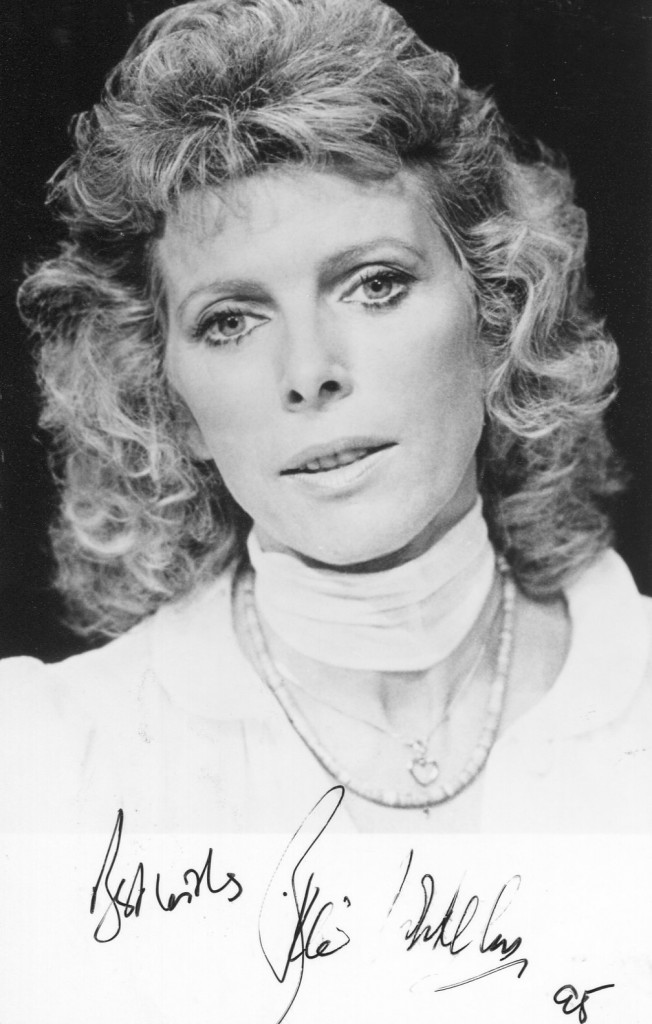
Billie Whitelaw was born in Coventry in 1932. She is best known for her stage interpretations of the works of Samuel Beckett. She has also made some many fine movies including “Carve Her Name With Pride” with Virginia McKenna in 1958, “No Love For Johnnie” in 1961 with Peter Finch and Alfred Hitchcock’s “Frenzy”. Billie Whitelaw died in 2014.
TCM overview:
A distinguished actress who worked extensively in radio during childhood and made her mark as one of the leading young performers of British TV in the 1960s, Billie Whitelaw made her big-screen debut in “The Fake” (1953) and went on to co-star with Peter Finch in “No Love for Johnnie” (1960) as well as gain particular acclaim, including a British Academy Best Actress award, for her turn in Albert Finney’s “Charlie Bubbles” (1967). She has since turned in hig
hly effective, if intermittent, movie performances. Whitelaw was particularly memorable as the ill-fated nanny in 1976’s “The Omen” and was seen by US audiences as the mother of British gangsters “The Krays” (1990), the housekeeper in Franco Zeffirelli’s version of “Charlotte Bronte’s Jane Eyre” (1996) and the blind laundress in “Quills” (2000). On the stage, Whitelaw has emerged as the preeminent interpreter of the work of Samuel Beckett.

Griffith Jones was born in 1909 in Lincoln. He was a stalwart of British films in the 1940’s. His movies include “The Wicked Lady” in 1945 with Margaret Lockwood and Patricia Roc and “Miranda” in 1948 with Glynis Johns. He also had a major stage career. He was the father of actors Gemma Jones and Nicholas Jones. He died in 2007 at the age of 97.
Alan Strachan’s “Independent” obituary:
In an unusually long theatrical lifetime Griffith Jones’s career ran a remarkable gamut from early London prominence, as a strikingly handsome jeune premier blessed with commanding stage presence and a rich voice, through appearances with John Gielgud and in Noël Coward musicals to West End and Broadway stardom, alongside success in British movies, to a later career in a radically altered post-war theatre – and then into a glorious Indian summer with the Royal Shakespeare Company in his final active years, allying him with a new wave of directors.
He was born Harold Jones in London in 1909, to a Welsh-speaking former lead miner who ran a dairy business. He was “headhunted” for a stage career by Sir Kenneth Barnes, Principal of the Royal Academy of Dramatic Art, who had seen him in a drama society production at University College London, where Jones had begun a degree in Law. He made his first professional appearance at the enterprising off-West End Embassy Theatre in Carpet Slippers (1930) while still at Rada (he was Gold Medallist in 1932 – although his initially disapproving father still referred to him as “a chorus boy”).
After making his West End début as the Narrator in an adaptation of Evelyn Waugh’s Vile Bodies (Vaudeville, 1932), Griffith Jones – as he now styled himself – was rarely out of work throughout the 1930s. He appeared as Montague in Richard of Bordeaux (New, 1932), Gordon Daviot’s chronicle play centred round Richard II in which John Gielgud was catapulted to major commercial stardom; and as Weyland alongside Laurence Olivier in one of the most original plays of its era, Keith Winter’s The Rats of Norway (Playhouse, 1933).
One of the biggest successes of the decade, Margaret Kennedy’s romantic saga of edelweiss and dirndl Escape Me Never (Apollo, 1933), lavishly produced by C.B. Cochran to launch the international career of the Viennese star Elisabeth Bergner, saw Jones make a deep impression as the staunch Caryl Sanger, repeating the performance on Broadway in 1935 with similar success.
On his return, his London career continued to flourish with appearances in a signally dark Rodney Ackland comedy After October (Criterion, 1936) and opposite another great Viennese star, Fritzi Massary, in Coward’s musical Operette (His Majesty’s, 1938), a somewhat confusingly bifurcated tale alternating between society drawing-rooms and backstage scenes; Jones recalled the Manchester try-out mainly for the sight of hundreds of matches being struck in the auditorium by bewildered playgoers consulting their programme scenarios in an attempt to find out where they were.
By this period Jones had also begun to establish a strong reputation in British film. After his début in The Faithful Heart (1932) he had good opportunities in A Yank at Oxford (1938), as Orlov in Alexander Korda’s decidedly overblown Catherine the Great (1934) and in the larky cross-dressing First a Girl (1935) with Jessie Matthews. He humanised a somewhat flatly written role as Michael Redgrave’s more conventional brother, competing for the love of Valerie Hobson, in Atlantic Ferry (1940), with Emeric Pressburger’s screenplay shamelessly lifting its plot from Turgenev’s Fathers and Sons.
After serving in the Army between 1940 and 1945 (touring England in a concert party), Jones returned to the London stage in a long-running, sumptuous Wildean revival, giving a performance of stylish aplomb as Lord Darlington in Lady Windermere’s Fan (Haymarket, 1945). A return to Coward saw him in another period piece, the reworking of the plot of Private Lives into the Victorian-set Quadrille (Phoenix, 1952) in which Joyce Carey and Jones, as the Marquess of Heronden, played opposite the Broadway stars Alfred Lunt and Lynn Fontanne.
In a changing 1950s theatrical landscape Jones found fewer London opportunities, often touring – he played a memorably gritty Archie Rice in The Entertainer (1958) – or in regional repertory theatres, particularly enjoying the chance to play a barnstorming Long John Silver in Treasure Island (Newcastle, 1962). In the short-lived West End run of Jean Anouilh’s The Cavern (Strand, 1965) Jones for the first time had the chance to appear with his daughter Gemma (named after the heroine of Escape Me Never), early in her own theatrical career.
A keen Shavian, he also appreciated the role of the love-stricken Ridgeon in a sturdy revival of The Doctor’s Dilemma (Comedy, 1966), after which he enterprisingly took himself to Nottingham for a trailblazing 1973 Playhouse season that included the premiere of the Howard Brenton/David Hare play Brassneck, with Jones in vintage form as James Avon.
He made his first Royal Shakespeare Company appearance in a strong Stratford season in which he played a hauntingly resonant Ghost in Buzz Goodbody’s legendary small-scale Hamlet with Ben Kingsley, and Stanley in a rare revival of Perkin Warbeck (both the Other Place, 1975). Over the next quarter of a century his RSC track record covered new plays and revivals alongside Shakespeare, bringing him into contact with a whole new generation of actors, designers and directors; his position in the company as a distinguished senior member became unmatched and he was both respected and loved by his many younger collaborators.
The astonishing record of Jones’s work for the RSC must include his unusually strong Duncan in the revelatory Macbeth (Warehouse, 1977 and Young Vic, 1978) directed by Trevor Nunn with Ian McKellen and Judi Dench; Antigonus in John Barton’s sombre production of The Winter’s Tale (Stratford, 1976); Egeus in Nunn’s joyous celebration of The Comedy of Errors (Stratford, 1976); and a Chebutykin of heart-stopping pathos in Three Sisters, another of Nunn’s supreme productions (The Other Place and Warehouse, 1979).
He was, appositely, part of the marvellous RSC ensemble making up Nicholas Nickleby (Aldwych, 1980), in which his run of parts included a delightful sketch of Fluggers, and he was also part of the first RSC company at the Barbican when he played the Lord Chief Justice in Nunn’s scrutiny of both Henry IV plays (1982).
Inevitably Jones shared some of the company’s lows as well as the triumphs. He was well cast as Rainbow in the vintage John Dighton public-school farce The Happiest Days of Your Life (1984) but the play, in a rickety production, sat most uneasily on the Barbican stage, while even such finely etched performances as Jones’s D’Estaing in Pam Gems’s The Danton Affair (Barbican, 1986) could not redeem a misbegotten venture.
Sam Mendes’s production of Troilus and Cressida (Swan, 1990 and Pit, 1991) was launched in impressive style by Jones’s Priam, which was followed by the Old Man in King Lear (Stratford, 1990, and Barbican, 1991) with John Wood directed by Nicholas Hytner.
Other rising directors for whom Jones worked included David Thacker – the Volscian Senator in Coriolanus (Stratford and Barbican, 1994) – and Steven Pimlott: a vivid Abhorson in Measure for Measure (Stratford, 1994, and Barbican, 1995). He reprised Priam in a terrible jock-strapped gym-bunny version of Troilus and Cressida (Barbican, 1996) but had more luck as a loyal Tubal in The Merchant of Venice (Stratford, 1997), one of Gregory Doran’s first major RSC productions.
Although his crowded theatrical diary meant that Jones never was able to develop a major television career, still he managed to fit in alongside small-screen versions of Nicholas Nickleby and Macbeth appearances in such series as The Avengers, The Lotus Eaters and Fall of Eagles. Other films included Miranda (1948) opposite Glynis Johns’s entrancing mermaid-minx; the Gainsborough Films classic of the heaving-bosom Regency genre The Wicked Lady (1945), opposite Margaret Lockwood; the tense naval drama of mine-laden waters The Sea Shall Not Have Them (1954); and Not Wanted On Voyage (1957).
Jones happily launched an acting dynasty too. Alongside Gemma, his son Nicholas Jones has also built up a most distinguished career; appropriately both have made memorable appearances for the RSC.
Alan Strachan
The above “Independent” obituary can also be accessed online here.
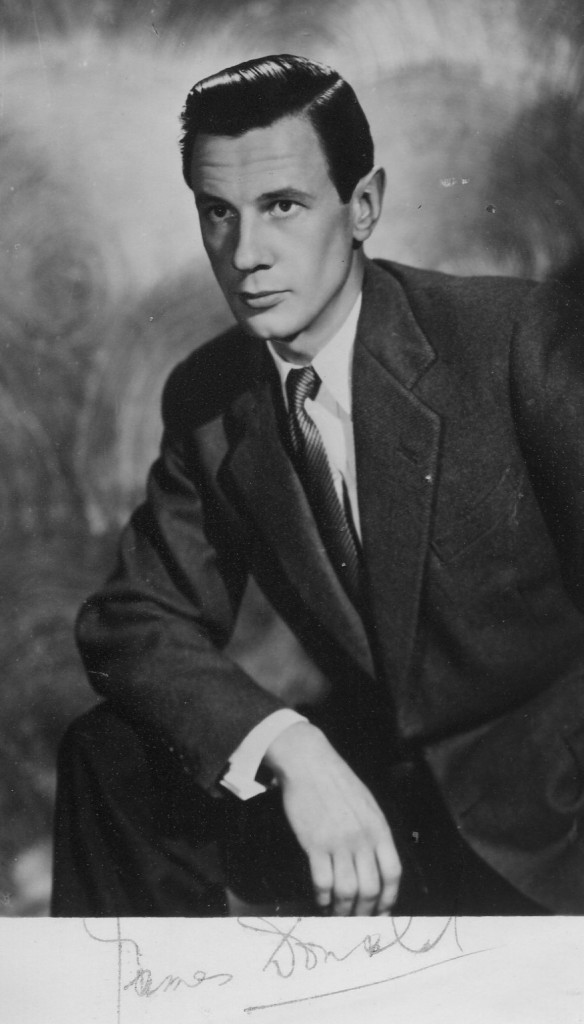
James Donald was born in Scotland in 1917. Tall and thin, he specialised in military figures or those in authority such as doctors and solicitors. His major roles include “The Bridge oin the River Kwai”, “King Rat” and “The Great Escape”. He died in 1993.
Adam Benedick’s obituary of James Donald in “The Independent”
BEFORE the post-war cinema took him under its wing, James Donald had been flying as high in the West End theatre as any young actor of his generation. Tall, lean, dark, intelligent-looking, he seemed to have a care for language and a sharp-edged humour which might lead him to the top in a theatrical era ruled by Gielgud, Olivier, Redgrave and Co.
Could he be one of tomorrow’s men? He had sensitivity and elegance. In some quarters his appeal was rated in the same breath as Scofield’s, Burton’s, Alan Badel’s. There was something Byronic, thoughtful, unpredictable and refreshing in this churchman’s son who had quit Scotland and a flirtation with academia (McGill and Edinburgh universities) for that least-known of theatrical quantities, the London Theatre Studio run for the Old Vic by that intellectual offshoot of the avant-garde French theatre, Michel Saint-Denis.
Saint-Denis was a sort of saint to intelligent young theatrical aspirants: a purist, an inspiration and utterly indifferent to the needs of the ‘commercial’ theatre. Very few of his students ever came to anything. In the days before subsidy and angry young men and social realism, it was Hugh (Binkie) Beaumont who ruled the British stage; but there was still the Old Vic.
After appearing in two of Saint-Denis’ pre-war productions, Bulgakov’s The White Guard, and Twelfth Night (with Michael Redgrave and Peggy Ashcroft) at the Phoenix, Donald found himself with a small part in Granville-Barker’s 1940 production of Lear for Gielgud at the Old Vic and the not exactly onerous but surely honourable task of understudying Gielgud.
When the Old Vic was bombed out of the Waterloo Road, Donald toured as the supercilious young servant Yasha to Athene Seyler’s Ranevska in The Cherry Orchard and, after the Old Vic’s London seasons at the New, in St Martin’s Lane, moved over to the Haymarket Theatre to join Noel Coward’s company in 1943.
There Donald’s success as the comically sanctimonious playwright in Present Laughter put him on the map. Some said he upstaged the self-indulgent Coward himself (as the matinee idol) by remaining so intensely serious as the indignant young writer with the endearing, grating voice.
It was his baptism as a Haymarket actor, and though the bright young men of the next generation might sneer at the label, not all the Haymarket plays in the 1940s and 1950s were ‘safe’ or ‘cosy’ or ‘elegant’. Indeed, Cocteau’s The Eagle Has Two Heads, in which Donald played the lover-assassin of Eileen Herlie’s Ruritanian queen was a test of everybody’s patience, with her record-breaking first-act speech judged by the stop-watches rather than dramatic interest; but Donald, a good listener, knew how to share the romantic limelight tactfully.
His next West End performance came ‘by kind permission of Metro- Goldwyn Mayer’ in Shaw’s You Never Can Tell (Wyndham’s) before his greatest break of all a few months later at – where else? – the Haymarket. In Henry James’s sad story he was the cad who, having courted the ‘plain’ young spinster (Peggy Ashcroft) for her fortune, jilts her. When he comes calling again she turns him down flat. She too has learnt how to be cruel.
It was one of Ashcroft’s greatest nights, but somehow Donald found a touch of pathos for the worthless lover; and so Laurence Olivier gave him the title-role opposite the adored Diana Wynyard in his next production as actor-manager at the St James’s, a new play by a new playwright, Denis Cannan’s Captain Carvallo. It was a high comedy of verbal exuberance and Shavian fancy, and it clinched Donald’s reputation as one of the West End’s most fashionable actors.
If there was no limelight left for him (or anybody else) to share with Edith Evans in Christopher Fry’s The Dark is Light Enough (Aldwych, 1954), his career in films as men of conscience rather than action – The Small Voice (1948), Trottie True (1949), White Corridors (1951), The Gift Horse (1952), Beau Brummell (1954) – was by then going strong.
He also ventured into theatrical management with his wife while continuing as an occasional Haymarket actor (The Doctor’s Dilemma, The Wings of the Dove) in an era of sharply changing theatrical tastes. Firing from the West End at Sloane Square and the East End at Stratford East, the enemy of elegant dialogue and elegant acting was at the gates.
James Donald was not the only player of his kind to find an outlet in the cinema in the coming decades, as one of its most familiar, reliable and agreeable actors whose character stood for decency and common sense – The Bridge on the River Kwai (1957), King Rat (1965), The Jokers (1967), David Copperfield (1969), The Royal Hunt of the Sun (1969), Conduct Unbecoming (1975). But it was a long way in more ways than one from the theatrical dreams and schemes provoked by Saint-Denis at the London Theatre Studio in the late 1930s.
James Donald “Independent” obituary can be accessed here.
Gary Brumburgh’s entry:
Scottish-born actor James Donald was born in Aberdeen on May 18, 1917, and took his first professional stage bow some time in the late 30s. He finally attained a degree of stardom in 1943 for his sterling performance in Noel Coward‘s “Present Laughter”, which starred Coward himself. Subsequent post-war theatre work included “The Eagle with Two Heads” (1947), “You Never Can Tell” (1948) and “The Heiress” (1949) with Ralph Richardson, Peggy Ashcroft and Donald Sinden.
Rather humorless in character with a gaunt, intent-looking face and no-nonsense demeanor, James made his debut in British films in 1942, fitting quite comfortably into the stoic war-era mold with roles in such noteworthy military sagas as In Which We Serve (1942) and The Way Ahead (1944). Ably supporting such top-notch actors asSpencer Tracy and Deborah Kerr in Edward, My Son (1949) and Elizabeth Taylor andStewart Granger in Beau Brummell (1954), he also managed to head up a number of films including White Corridors (1951) in which he and Googie Withers play husband and wife doctors who try to balance career and marriage; Charles Dickens’ The Pickwick Papers(1952) as “Nathaniel Winkle”, and Project M7 (1953) as a scientist obsessed with his work. In addition, he earned superb marks for a number of quality films in the 1950s and 1960s. His portrayal of painter ‘Vincent Van Gogh”s brother “Theo” in Lust for Life (1956) with Kirk Douglas, was quite memorable, as was his trenchant work in the WWII POW dramas The Bridge on the River Kwai (1957), The Great Escape (1963), and King Rat(1965). Most of the men he played were intelligent, moral-minded and honorable. While continuing to perform on stage, he also gained TV exposure. James received an Emmy nomination for his role as “Prince Albert” opposite Julie Harris in Victoria Regina (1961), and performed the part of the cruel-eyed stepfather “Mr. Murdstone” in the period remake of David Copperfield (1969) toward the end of his career. Off the screen for a number of years, he died of stomach cancer on August 3, 1993 in England. He was 76.
– IMDb Mini Biography By: Gary Brumburgh / gr-home@pacbell.ne
Ingrid Boulting was born in Transvaal in 1947 – daughter of English film-maker John Boulting and niece of Ray Boulting and Sydney Boulting a.k.a. Peter Cotes. She was a ballerina and model,[2] before embarking on an acting career. In 1976, Ingrid starred in, “The Last Tycoon (film),” the last film directed by famed director Elia Kazan, written by Harold Pinter based on F. Scott Fitzgerald‘s Hollywood novel, “The Love of the Last Tycoon,” produced by Sam Spiegel.
Anyone who knows me are aware that I am a bit of a movie buff. Over the past few years I have been collecting signed photographs of my favourite actors. Since I like movies so much there are many actors whose work I like.